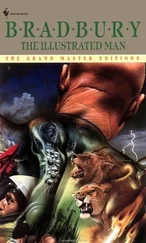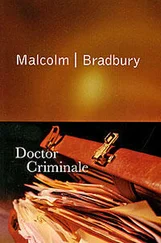Malcolm Bradbury - The History Man
Здесь есть возможность читать онлайн «Malcolm Bradbury - The History Man» весь текст электронной книги совершенно бесплатно (целиком полную версию без сокращений). В некоторых случаях можно слушать аудио, скачать через торрент в формате fb2 и присутствует краткое содержание. Жанр: Современная проза, на английском языке. Описание произведения, (предисловие) а так же отзывы посетителей доступны на портале библиотеки ЛибКат.
- Название:The History Man
- Автор:
- Жанр:
- Год:неизвестен
- ISBN:нет данных
- Рейтинг книги:3 / 5. Голосов: 1
-
Избранное:Добавить в избранное
- Отзывы:
-
Ваша оценка:
- 60
- 1
- 2
- 3
- 4
- 5
The History Man: краткое содержание, описание и аннотация
Предлагаем к чтению аннотацию, описание, краткое содержание или предисловие (зависит от того, что написал сам автор книги «The History Man»). Если вы не нашли необходимую информацию о книге — напишите в комментариях, мы постараемся отыскать её.
The History Man — читать онлайн бесплатно полную книгу (весь текст) целиком
Ниже представлен текст книги, разбитый по страницам. Система сохранения места последней прочитанной страницы, позволяет с удобством читать онлайн бесплатно книгу «The History Man», без необходимости каждый раз заново искать на чём Вы остановились. Поставьте закладку, и сможете в любой момент перейти на страницу, на которой закончили чтение.
Интервал:
Закладка:
'I've no doubt they have their own fish to fry,' says Flora. 'Well, you can't hold the hosts responsible for everything that happens at a party like this. It might have been better to look for Myra.'
'I think she's down in the kitchen,' says the faculty wife. 'Find her,' says Flora, 'but look at her first, and don't bring her up here unless she's sober and rational.'
'Is it serious?' asks the faculty wife. 'Fairly,' says Flora. A solemn student has found a broom and a dustpan, and he sweeps away the broken glass under the window, and around Henry. 'Steady,' says Flora. 'Oh, God, I'm ridiculous,' says Henry, on the floor. Myra comes in, clutching her sequinned handbag, her coiffure now very tipsy, and looks at Henry, at Flora. She says: 'I hear Henry's done something else silly.'
'He's hurt himself quite badly,' says Flora. 'I don't know how, I wasn't here. He'll have to go to the casualty department and have this stitched.'
'I expect he was trying to make me feel sorry for him,' says Myra. 'I'm not sure we're interested in your response at this moment,' says Flora. 'You're over-acting, it's a nuisance.'
'What are you doing, Henry?' says Myra. 'Go away, Myra,' says Flora, 'I'll take Henry to the hospital. I've been there many times. Why don't you go back home and wait for him?'
'I might,' says Myra, 'I might.' The ambulance arrives, with a flashing blue light, and so a lot of people help in the task of carrying Henry, who keeps groaning, down the staircase. Their feet thump heavily on the woodwork, and down in the basement study Howard hears the thunder of noise. The flashing light is shining bluely in through the curtains, casting strange shapes across the bookcases and the masks. But Howard, who is busy, does not properly see it, or interpret it. 'They seem to be enjoying themselves,' he whispers into the ear of Felicity Phee. Felicity, underneath him, whispers, 'I am too.'
'Good,' says Howard. 'And you?'
'Yes,' says Howard. 'Not very much.' says Felicity, 'but I'm glad to have what you find you can give me.'
'It's the very usual thing,' says Howard. 'No,' says Felicity. The ambulance klaxon sounds out in the terrace as it drives off. 'Drugs squad,' says Howard. 'No, lie still, stay there,' says Felicity. 'I thought something had happened, I should have been around,' Howard will say in the morning, when Flora tells him what it was that had happened. But Flora will also explain what is clearly true: that, at parties, everyone has his own affairs to attend to, and should be presumed to be attending to them, just as Henry, in his way, also was. For people are people, and parties are parties; especially when they happen to be at the Kirks'.
VI
It is four in the morning when the party comes to its end. The last guests stand in the hall, some of them needing the support of the wall; they say their goodbyes; they venture through the door into the quietness of early-morning Watermouth. The Kirks, that hospitable couple, usher them forth, and then they go upstairs to their disorderly bedroom, which smells sharply of pot, and push the bed back into position, and take the ashtrays off it, and undress, and get under the duvet. They say nothing, being tired people; they do not touch each other, having no need; Barbara, in her black nightdress, folds her body into Howard's, her buttocks on his knees, and they are quickly asleep. And then it is the morning, and the Habitat alarm clock rings on the bedside table, and they wake again, back into the life of ordinary things. Consciousness returns, and feels heavy with use; Howard presses his eyelids open, jerks towards being, regresses, tries again. Traffic thumps on the creases of the urban motorway; a diesel commuter train hoots on the viaduct; the graders are revving on the construction sites. The bed vibrates and bounces; Barbara is getting up. The Habitat alarm clock says it is v to viii. Barbara pads across to the door, and takes her housecoat from the hook; she goes across to the window and pulls back the curtain to admit dull wet daylight. The room appears in its unmitigated thinginess, flavoured with the dusty smell of cigarette smoke, the sweet aftersmell of pot. A thrown-off dress, gutted by its long zip, hangs askew on the door. On the junkshop chest of drawers, its grain surface rough, one handle gone, two handles broken, are some plates, three full ashtrays, and many empty wine glasses from the supermarket. The lavatory flushes along the landing. Outside black rainclouds move in off the sea and over the tops of the luxury flats; the rain pours' and smudges and blackens the brickwork of the shattered houses opposite, dripping violently in the Kirks' unstable guttering. In Howard's head is the dry image of a person: Felicity 'Phee, a mottling of spots above her breasts. He activates muscular mechanisms; he gets out of bed and walks, through the party detritus and the unredeemed daylight, to the bathroom. He urinates into the bowl; he takes his razor from the medicine cabinet, and unravels the cord. He plugs the razor into two black holes under the white globe of the light.
He pulls the string of the switch. Light and razor, glare and noise, both come on. His face rises into visibility in the fingermarked glass of the mirror. In the cool urban sheen of the morning, he inspects the Condition of Man. His bleak, beaky features, the moustache worn like a glower, stare out at him as he stares back in at them. 'Christ,' he says, 'you again.' His fingers come up and touch and shape this strange flesh into position. He runs the razor over it, shaping and ordering the construct before him, sculpting neatly round the edge of the moustache, clipping at the line of the sideboards. He stops the razor; from downstairs, he can hear the barbaric yawp of his children. The features he has been designing hang pallidly, abstractly, before him in the mirror; he pokes at them, hoping to urge into them that primordial glow which is actual and real livingness. There is no response. He picks up a bottle of aftershave lotion with a machismo label, and slaps some into his cheeks. He switches off the light above the mirror; the face fades. A family row of toothbrushes are prodded into a metal rack above the washbasin; he takes one, and scrubs up a foam inside his mouth. The rain splashes in the gutters. A female cooing sounds in the acoustical complexities of the staircase; he is being called to breakfast and his domestic duties, for it is his turn to take the children to school. He combs his hair, and drops a fuzz of haircombings into the yellow waters of the lavatory bowl. He presses the handle, and flushes it. He returns to the bedroom and reaches into the wardrobe, selecting some clothes, his cultural identity. He puts on jeans and a sweater; he straps on his watch. He goes toward the domestic arena. On the landing, on the stairs, there are empty glasses and plates, cups and ashtrays, bottles. Anita Dollfuss's dog has left its traces, and there are strange dark drips of something along the length of the hall. A silvery dress lies on the floor. He goes through into the pine décor of the kitchen, where chaos is total. Many empty bottles stand on the pine counters; many dirty plates are scattered everywhere. The stench of old parties prevails. In an endless sequence of little explosions, rain plumps on the glass roof of the Victorian conservatory, where the children are playing. The electric kettle fuzzes a thin line of steam around Barbara, who stands in her housecoat, in front of the cooker, her hair untidy.
'My God, just look at it,' says Barabara, putting eggs into a pan. 'Go on, just look at it.' Howard puts bread into the toaster; obliging, he looks around. 'It's a mess,' he says. 'Which you undertook to help me clear up,' says Barbara. 'That's right,' says Howard, 'I will.'
'Can you advise me when?'
Читать дальшеИнтервал:
Закладка:
Похожие книги на «The History Man»
Представляем Вашему вниманию похожие книги на «The History Man» списком для выбора. Мы отобрали схожую по названию и смыслу литературу в надежде предоставить читателям больше вариантов отыскать новые, интересные, ещё непрочитанные произведения.
Обсуждение, отзывы о книге «The History Man» и просто собственные мнения читателей. Оставьте ваши комментарии, напишите, что Вы думаете о произведении, его смысле или главных героях. Укажите что конкретно понравилось, а что нет, и почему Вы так считаете.











